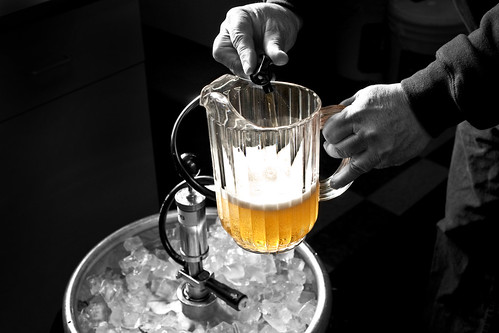The tween and teen years are tough for kids as well as their parents. Growing up is hard work! Many parents assume that their sons and daughters know right from wrong and will never fall victim to peer pressure. While that might be true in some cases, even the most mature adolescents decide to follow the crowd every now and then — the desire to “fit in” is human nature.

Image Credit
Talking to your teen about drunk driving isn’t easy, but think of it as a necessary evil. Alcohol is the drug of choice among America’s youth, and kids are drinking at earlier ages than ever before. According to drunk driving statistics from the Centers for Disease Control and Prevention, nearly one-fourth of teens surveyed admitted to riding with a driver who had been drinking.

Image Credit
Here are five suggestions for talking to your son/daughter about drunk driving:
- Have a conversation with your teen about alcohol. Don’t take the “no news is good news” approach when it comes to talking about drinking. Just because they haven’t brought up the topic doesn’t mean they aren’t aware of alcohol. It’s better for your son/daughter to receive accurate information about drinking from you than it is for him/her to believe whatever (s)he hears at school or reads online. Discuss the fact that many adults drink on occasion, but there are laws and age restrictions in place for a reason.
- Agree upon rules and boundaries about going out, parties, and drinking. Kids rebel because they want to feel older and fit in with their friends. Set clear rules about not drinking and driving. When setting rules for your teen to follow, remind him/her that you’re not “just being mean.” Make sure your teen has a clear understanding of the physical dangers associated with drinking and driving such as the risk of car accidents, injuries and even death as well as the legal consequences – (s)he will not only be in trouble at home, but could get into trouble with the law. Let your teen know that you will not give him/her alcohol, and (s)he should not drink it if it’s offered elsewhere, even from a friend’s parent.
- Watch videos together that showcase the dangers of drunk driving. Because teens are visual — what they see often impacts them much more than what their parents or their teachers say — show videos that display the very real dangers of drunk driving or watch a relevant episode of COPS. Kids and teens often believe that bad things only happen to other people. Show them that thousands of kids their own age have been impacted by drinking in very serious ways.
- Remind your teen that they can always call you if they need a ride home. Even though you’ve set rules about drinking, tell your child that they can always call you if she slips up, no questions asked. Let him/her know that (s)he should never accept a ride from someone else who has been drinking.
- Talk to your teen about drinking on a regular basis. Ensure that these conversations don’t go in one ear and out the other by communicating with your teen regularly. Stay up-to-date on his/her life and friends. Make sure to bring up drinking, drugs, and other dangerous habits around homecoming and prom seasons as well as other times of the year that teens are known to drink.

Image Credit
These are just a few suggestions that can help make “the talk” easier on parents. Don’t let your teen become a statistic — talk to him/her about things that are going on in their life, even if these conversations make both of you feel a little bit uncomfortable.
Jon Reiter works with Flesch Law, a criminal law firm in Denver that focuses on DUI, sex crimes, violent crimes, felonies, and traffic violations.
Law Guru
Latest posts by Law Guru (see all)
- Will Google Glass Cause Traffic Accidents & Create Privacy Issues? - December 4, 2013
- Tools to Help You Find a Safe, Low-Crime Neighborhood - October 4, 2013
- Car Lawsuits That Make your Head Spin - August 13, 2013
